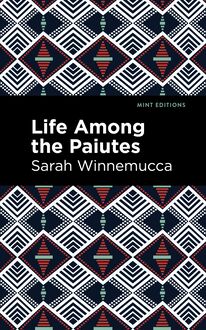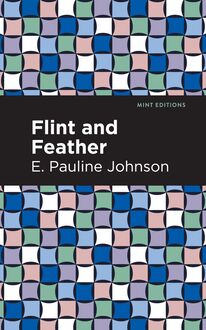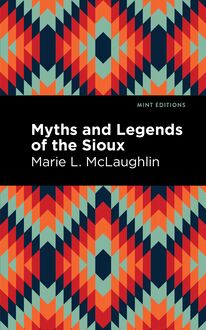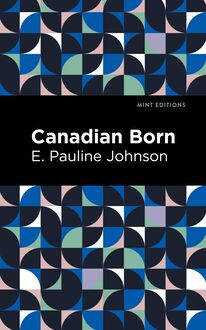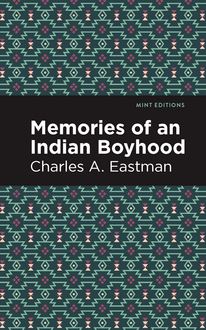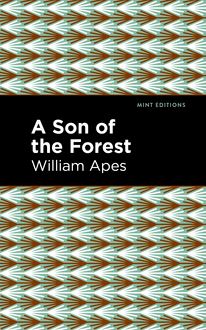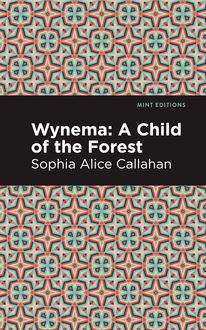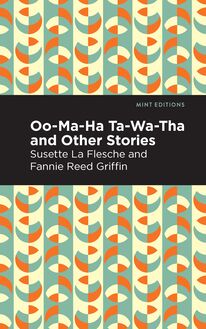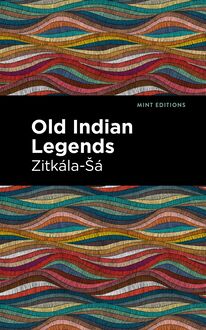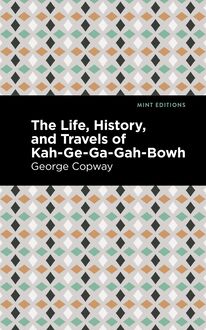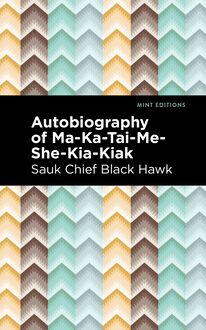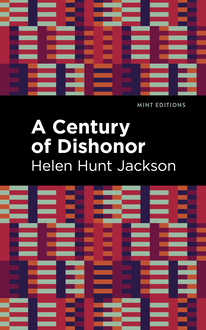-
 Univers
Univers
-
 Ebooks
Ebooks
-
 Livres audio
Livres audio
-
 Presse
Presse
-
 Podcasts
Podcasts
-
 BD
BD
-
 Documents
Documents
-
- Cours
- Révisions
- Ressources pédagogiques
- Sciences de l’éducation
- Manuels scolaires
- Langues
- Travaux de classe
- Annales de BEP
- Etudes supérieures
- Maternelle et primaire
- Fiches de lecture
- Orientation scolaire
- Méthodologie
- Corrigés de devoir
- Annales d’examens et concours
- Annales du bac
- Annales du brevet
- Rapports de stage
La lecture à portée de main
Vous pourrez modifier la taille du texte de cet ouvrage
Découvre YouScribe en t'inscrivant gratuitement
Je m'inscrisDécouvre YouScribe en t'inscrivant gratuitement
Je m'inscrisEn savoir plus
Vous pourrez modifier la taille du texte de cet ouvrage
En savoir plus

Description
The White Wampum (1895) is the debut poetry collection of E. Pauline Johnson. Originally published in London, The White Wampum launched her career as one of Canada’s most distinguished artists. Revered as one the foremost indigenous poets of her time, Johnson was a prolific writer whose works explored her Mohawk heritage while shedding light on the racism and persecution faced by indigenous peoples across North America. The White Wampum captures Johnson’s range as a poet in tune with the Romantic tradition without erasing her dualistic sense of identity as a woman of Mohawk and English heritage. Choosing to emphasize the former, Johnson, who also went by Tekahionwake, her great-grandfather’s name, adopts the persona of a Mohawk wife devoted to her husband, a powerful warrior: “I am Ojistoh, I am she, the wife / Of him whose name breathes bravery and life / And courage to the tribe that calls him chief. / I am Ojistoh, his white star, and he / Is land, and lake, and sky—and soul to me.” When members of the rival Huron tribe capture Ojistoh, their plan for retribution fails to account for her own strength and willpower. Outnumbered and unarmed, she remains certain she will return to her husband alive. In “The Camper,” Johnson invokes the beauty and simplicity of life on the plains, erasing for a moment all distinction between man and god, heaven and earth: “Night neath the northern skies, lone, black, and grim: / Nought but the starlight lies twixt heaven, and him. / Of man no need has he, of God, no prayer; / He and his Deity are brothers there.” With a beautifully designed cover and professionally typeset manuscript, this edition of E. Pauline Johnson’s The White Wampum is a classic of Canadian literature reimagined for modern readers.
Sujets
Informations
| Publié par | Mint Editions |
| Date de parution | 12 octobre 2021 |
| Nombre de lectures | 0 |
| EAN13 | 9781513217390 |
| Langue | English |
Informations légales : prix de location à la page 0,0300€. Cette information est donnée uniquement à titre indicatif conformément à la législation en vigueur.
Extrait
The White Wampum
E. Pauline Johnson
The White Wampum was first published in 1895.
This edition published by Mint Editions 2021.
ISBN 9781513218397 | E-ISBN 9781513217390
Published by Mint Editions®
minteditionbooks.com
Publishing Director: Jennifer Newens
Design & Production: Rachel Lopez Metzger
Project Manager: Micaela Clark
Typesetting: Westchester Publishing Services
C ONTENTS O JISTOH A S R ED M EN D IE T HE P ILOT OF THE P LAINS T HE C ATTLE T HIEF A C RY FROM AN I NDIAN W IFE D AWENDINE W OLVERINE T HE V AGABONDS T HE S ONG MY P ADDLE S INGS T HE C AMPER A T H USKING T IME W ORKWORN E ASTER E RIE W ATERS T HE F LIGHT OF THE C ROWS M OONSET M ARSHLANDS J OE S HADOW R IVER R AINFALL U NDER C ANVAS T HE B IRDS’ L ULLABY O VERLOOKED F ASTING C HRISTMASTIDE C LOSE BY T HE I DLERS A T S UNSET P ENSEROSO R E- V OYAGE B RIER W AVE- W ON T HE H APPY H UNTING G ROUNDS I N THE S HADOWS N OCTURNE M Y E NGLISH L ETTER
O JISTOH
I am Ojistoh, I am she, the wife
Of him whose name breathes bravery and life
And courage to the tribe that calls him chief.
I am Ojistoh, his white star, and he
Is land, and lake, and sky—and soul to me.
Ah! but they hated him, those Huron braves,
Him who had flung their warriors into graves,
Him who had crushed them underneath his heel,
Whose arm was iron, and whose heart was steel
To all—save me, Ojistoh, chosen wife
Of my great Mohawk, white star of his life.
Ah! but they hated him, and councilled long
With subtle witchcraft how to work him wrong;
How to avenge their dead, and strike him where
His pride was highest, and his fame most fair.
Their hearts grew weak as women at his name:
They dared no war-path since my Mohawk came
With ashen bow, and flinten arrow-head
To pierce their craven bodies; but their dead
Must be avenged. Avenged? They dared not walk
In day and meet his deadly tomahawk;
They dared not face his fearless scalping knife;
So—Niyoh! 1 —then they thought of me, his wife.
O! evil, evil face of them they sent
With evil Huron speech: “Would I consent
To take of wealth? be queen of all their tribe?
Have wampum ermine?” Back I flung the bribe
Into their teeth, and said, “While I have life
Know this—Ojistoh is the Mohawk’s wife.”
Wah! how we struggled! But their arms were strong.
They flung me on their pony’s back, with thong
Round ankle, wrist, and shoulder. Then upleapt
The one I hated most: his eye he swept
Over my misery, and sneering said,
“Thus, fair Ojistoh, we avenge our dead.”
And we two rode, rode as a sea wind-chased,
I, bound with buckskin to his hated waist,
He, sneering, laughing, jeering, while he lashed
The horse to foam, as on and on we dashed.
Plunging through creek and river, bush and trail,
On, on we galloped like a northern gale.
At last, his distant Huron fires aflame
We saw, and nearer, nearer still we came.
I, bound behind him in the captive’s place,
Scarcely could see the outline of his face.
I smiled, and laid my cheek against his back:
“Loose thou my hands,” I said. “This pace let slack.
Forget we now that thou and I are foes.
I like thee well, and wish to clasp thee close;
I like the courage of thine eye and brow;
I like thee better than my Mohawk now .”
He cut the cords; we ceased our maddened haste.
I wound my arms about his tawny waist;
My hand crept up the buckskin of his belt;
His knife hilt in my burning palm I felt;
One hand caressed his cheek, the other drew
The weapon softly—“I love you, love you,”
I whispered, “love you as my life.”
And—buried in his back his scalping knife.
Ha! how I rode, rode as a sea wind-chased,
Mad with sudden freedom, mad with haste,
Back to my Mohawk and my home, I lashed
That horse to foam, as on and on I dashed.
Plunging thro’ creek and river, bush and trail,
On, on I galloped like a northern gale.
And then my distant Mohawk’s fires aflame
I saw, as nearer, nearer still I came,
My hands all wet, stained with a life’s red dye,
But pure my soul, pure as those stars on high—
“My Mohawk’s pure white star, Ojistoh, still am I.”
1 God, in the Mohawk language.
A S R ED M EN D IE
Captive! Is there a hell to him like this?
A taunt more galling than the Huron’s hiss?
He—proud and scornful, he—who laughed at law,
He—scion of the deadly Iroquois,
He—the bloodthirsty, he—the Mohawk chief,
He—who despises pain and sneers at grief,
Here in the hated Huron’s vicious clutch,
That even captive he disdains to touch!
Captive! But never conquered; Mohawk brave
Stoops not to be to any man a slave;
Least, to the puny tribe his soul abhors,
The tribe whose wigwams sprinkle Simcoe’s shores.
With scowling brow he stands and courage high,
Watching with haughty and defiant eye
His captors, as they council o’er his fate,
Or strive his boldness to intimidate.
Then fling they unto him the choice;
“Wilt thou
Walk o’er the bed of fire that waits thee now—
Walk with uncovered feet upon the coals
Until thou reach the ghostly Land of Souls,
And, with thy Mohawk death-song please our ear?
Or wilt thou with the women rest thee here? ”
His eyes flash like an eagle’s, and his hands
Clench at the insult. Like a god he stands.
“Prepare the fire!” he scornfully demands.
He knoweth not that this same jeering band
Will bite the dust—will lick the Mohawk’s hand;
Will kneel and cower at the Mohawk’s feet;
Will shrink when Mohawk war-drums wildly beat.
His death will be avenged with hideous hate
By Iroquois, swift to annihilate
His vile detested captors, that now flaunt
Their war clubs in his face with sneer and taunt,
Not thinking, soon that reeking, red, and raw,
Their scalps will deck the belts of Iroquois.
The path of coals outstretches, white with heat,
A forest fir’s length—ready for his feet.
Unflinching as a rock he steps along
The burning mass, and sings his wild war song;
Sings, as he sang when once he used to roam
Throughout the forests of his southern home,
Where, down the Genesee, the water roars,
Where gentle Mohawk purls between its shores,
Songs, that of exploit and of prowess tell;
Songs of the Iroquois invincible.
Up the long trail of fire he boasting goes,
Dancing a war dance to defy his foes.
His flesh is scorched, his muscles burn and shrink,
But still he dances to death’s awful brink.
The eagle plume that crests his haughty head
Will never droop until his heart be dead.
Slower and slower yet his footstep swings,
Wilder and wilder still his death-song rings,
Fiercer and fiercer thro’ the forest bounds
His voice that leaps to Happier Hunting Grounds.
One savage yell—
Then loyal to his race,
He bends to death—but never to disgrace.
T HE P ILOT OF THE P LAINS
“False,” they said, “thy Pale-face lover, from the land of waking morn;
Rise and wed thy Redskin wooer, nobler warrior ne’er was born;
Cease thy watching, cease thy dreaming,
Show the white thine Indian scorn.”
Thus they taunted her, declaring, “He remembers naught of thee:
-
 Univers
Univers
-
 Ebooks
Ebooks
-
 Livres audio
Livres audio
-
 Presse
Presse
-
 Podcasts
Podcasts
-
 BD
BD
-
 Documents
Documents
-
Jeunesse
-
Littérature
-
Ressources professionnelles
-
Santé et bien-être
-
Savoirs
-
Education
-
Loisirs et hobbies
-
Art, musique et cinéma
-
Actualité et débat de société
-
Jeunesse
-
Littérature
-
Ressources professionnelles
-
Santé et bien-être
-
Savoirs
-
Education
-
Loisirs et hobbies
-
Art, musique et cinéma
-
Actualité et débat de société
-
Actualités
-
Lifestyle
-
Presse jeunesse
-
Presse professionnelle
-
Pratique
-
Presse sportive
-
Presse internationale
-
Culture & Médias
-
Action et Aventures
-
Science-fiction et Fantasy
-
Société
-
Jeunesse
-
Littérature
-
Ressources professionnelles
-
Santé et bien-être
-
Savoirs
-
Education
-
Loisirs et hobbies
-
Art, musique et cinéma
-
Actualité et débat de société
- Cours
- Révisions
- Ressources pédagogiques
- Sciences de l’éducation
- Manuels scolaires
- Langues
- Travaux de classe
- Annales de BEP
- Etudes supérieures
- Maternelle et primaire
- Fiches de lecture
- Orientation scolaire
- Méthodologie
- Corrigés de devoir
- Annales d’examens et concours
- Annales du bac
- Annales du brevet
- Rapports de stage
